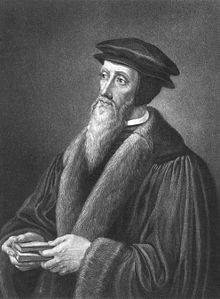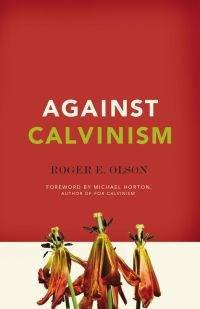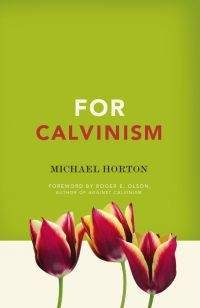I’m about to enter the scriptorium exeuntis, the paper-writing cave, from which there may be no return. But I suppose I shouldn’t leave everyone (all one or two of y’all?) hanging. Here is the second half of my post about Calvin.
I have felt pretty bad about the tone of that last post. I very nearly quietly removed it this morning, but after re-reading it, I decided that it wasn’t so bad. But I have feared that I came across in too polemical a way. That isn’t what this blog is about. I do not want, I am not interested at all, in attacking anyone else’s doctrine or theology or tradition. This blog is about my journey to the Catholic faith, all the good and praiseworthy things I have found in Catholicism. As I found out early on, embracing the Catholic tradition necessarily entails rejecting some other things. But I want to be clear that my aim is not to denigrate. In that last post, it was late; I was tired; and I probably could have done with a better choice of words (not to mention a good many fewer).
The title of this book I’m reviewing is Against Calvinism — but I am not against Calvinism at all. On the contrary, I am very fascinated by it. I think it is a worthy, valuable, and thoughtful paradigm for interpreting Scripture and thinking about God. I don’t know everything about God. The Catholic Church doesn’t know everything about God, nor does it claim to. What the Church does claim, I have embraced and I will uphold. But I do respect and even admire the knowledge and thought of others.
Roger Olson, in Against Calvinism, does come across in a rather polemical way. That was demonstrably his commission from Zondervan: to take apart and critique Calvinism, to provide the con to Michael Horton’s pro in For Calvinism. Olson makes clear that his aim is not to attack Calvinists — he affirms his love and respect for them as brothers and sisters in faith — but when he gets down to arguing, he can come across as rather vicious.
Notably, it’s clear that Horton and Olson didn’t read each other’s manuscripts before the publication of these books. Horton provides little in For Calvinism to anticipate the criticisms of Olson — and he probably should have, since I understand they’re pretty common criticisms. Likewise, the seemingly moderate Calvinism Horton presents (he vehemently denies his support of “hyper-Calvinism”) is not the Calvinism that Olson critiques in Against Calvinism. Olson takes aim at the “radical Reformed” theology of the “young, restless, Reformed” generation.
I went to school with a lot of those people (one or two may even be reading this), so I completely understand what Olson is talking about. I admire their passion for the Gospel and for God and most of all for their re-application of the intellect to faith. Olson sadly explains — and I nod fervently — the death of theology and doctrine in much of evangelical culture, the growing anti-intellectualism that leaves so many young people feeling empty. It certainly did that to me. It was a very good thing that I found security in my Catholic faith before reading Horton’s book. If I had read it while I was still lost, I think I would have pounced on Calvinism ravenously. (Most of my exposure to Calvinism while I was lost, though, was rather frightening and distasteful. Maybe I’ll share that sometime. But Horton presented it better than anyone ever had to me.)
As Olson critiques “radical Calvinism,” though, he makes clear that nearly all Calvinism is radical, if followed to the ends of its logic. Like a vicious game of dominoes, he pursues every Calvinist argument to its logical conclusions — many painful contradictions that, as Olson presents them, impugn the character of God. One of several phrases he repeats throughout the book is that Calvinism’s conclusions make God “either morally ambiguous or at worst a moral monster.” He demonstrates how each of the “five points” of Calvinism demands each other, how no “moderate Calvinist” can affirm just four and be logically honest (usually the one they want to reject is “limited atonement”), and how the whole system is predicated upon, and proceeds logically from, the affirmation of God’s absolute, meticulous sovereignty.
One thing I appreciate about Olson’s work is the extensive quotations he gives from Calvinist thinkers and authors, demonstrating that they in fact affirm what he is accusing them of affirming. Olson quotes from both Calvin and a half dozen influential Calvinist authors, including Loraine Boettner (a favorite villain for Catholics, who penned the wildly inaccurate Roman Catholicism (1962), responsible for so much of the rabid anti-Catholicism of the past half-century; I must confess I rather enjoyed watching him be pecked apart), R.C. Sproul (of whom I’d heard, but knew little about; I didn’t realize he was so anti-Catholic, and I’m now tempted to read him), and John Piper (the paragon and spiritual leader of so much of the RUF crowd; notably not anti-Catholic; I would really like to read him).
The contradictions Olson exposes are real and problematic. In my mind, they amount to these: If God is absolutely, meticulously sovereign, decreeing every event and movement down to the smallest atom, then he is necessarily the author of sin and evil. He created Satan and caused him to rebel; he created Adam and caused him to sin — or at least, “rendered his sin certain”; he “renders certain” each of our sins and failures. Calvinists have many ways of evading the conclusion that God bears responsibility for human sins and evils, arguing that God’s ways are not our ways, that He has a sovereign plan for it all, for His greater glory. They have many ways of explaining the apparent paradox between God’s sovereignty and human responsibility for our sins. But I am convinced by Olson’s argument here — both cannot be true.
Also, and even more problematic for me, Calvinism would present that God divinely reprobates the nonelect — those whom he did not choose to be saved — for sins that He himself ordained. He created many, if not most, of humanity for the sole purpose of being damned, of suffering both in this life and in eternity. God, who has the power and sovereignty to save all effectually, chooses to reject the most, even by choosing not to save them. How could a God who is love (1 John 4:8) do that? Olson argues that “double predestination” is a necessary conclusion of Calvinism’s other doctrines; that it can’t be excluded as Horton tries. And many (most of the authors he quotes) openly affirm it. Calvinists again have many arguments to explain divine reprobation. They argue that our human concept of love is not the same as God’s concept — but if God created our concept of love, how could it not be the same? Jesus reveals to us in fullness the character of God (John 14:9) — and I do not see Jesus rejecting people in this way or consigning anyone to suffering. Piper, for example, argues that God loves the elect in special way, but being love, loves all of creation, giving even many blessings to the reprobate — but as Olson points out, this is tantamount to “giving them a little piece of heaven to go to hell in.” How does creating people for suffering and death and loss, without any hope for redemption, exhibit “love”?
And that has always been my problem with Calvinism. I have had many friends who extol the hope and assurance it gives them to believe that God is control of everything, that no matter what happens, no matter what trials and sufferings they face, God has a plan for it and will ultimately bring them to glory and salvation. But I have always tended to see the other side of that coin. Identifying, as Jesus does, with the lost and the suffering, the “least of these,” I have only seen the utter hopelessness and despair to which these propositions necessarily leave the great mass of humanity. What is the point of living, of suffering through this existence, if there is no hope for anything beyond — if those people are predestined for only more and eternal suffering? To me, it necessarily undermines the essential dignity of all mankind, one of my core beliefs as a Christian and as a human — that all people are created in the image of God, and all people are worthy of love and respect; that no one deserves death and pain, and that I should labor in service to all. But Calvinism would tell me that much of humanity is destined only for destruction, that ministering to the lost is only a salve to the dying, that God ultimately doesn’t love those people the same way he loves his exclusive, preordained flock. Calvinists argue that the reprobate earn their destruction for themselves, through their sins and their rejection of Christ — but that only makes it worse, to say that they deserve it. For Christ rejected them first; he had the power to save them too, but didn’t. God decreed the very sins for which they suffer.
*exhales* … And as I said, I’m not against Calvinism. *grins sheepishly* I, like Olson I think, tend to get a little carried away with my rhetoric. I was going to say that I thought Olson was being a little harsh, but I’m not sure I did a lot better. The bottom line: I enjoyed Against Calvinism as well, though it was a bit of a painful experience, like watching someone take a hammer to the beautiful sculpture Horton had crafted. But I do think Olson is correct to point out these paradoxes, contradictions, and conundrums. All faith necessarily has mysteries, places where faith seems even foolish — in the Catholic faith, most ostentatiously, that bread and wine literally become the Body and Blood of Christ, when the senses show us otherwise. The problem of evil, explaining the origins and causes of sin and pain and suffering, is a problem for any faith. I certainly believe — I have seen enough in my life to affirm without a doubt — that God is sovereign over this world and our lives. But I have a very hard time embracing a view that openly declares that God is the author of all sin and pain, or that our loving God is not as loving as we believe.



